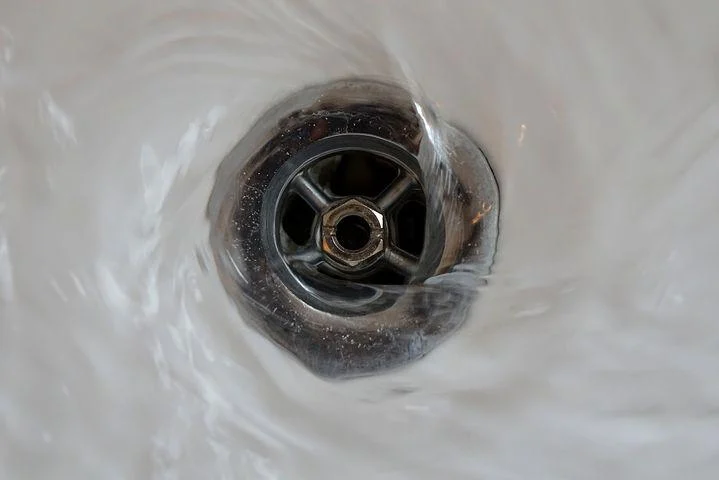The kitchen sink is a workhorse in any home, handling everything from dishwashing to food prep cleanup. But while it might seem like the most convenient place to dispose of certain items, there are some things that should never go down the drain—even if they seem harmless at the moment. Over time, these seemingly innocent items can cause serious plumbing issues, leading to clogs, damage, and costly repairs. Here’s a guide to what you should keep out of your kitchen sink and why.
- Grease, Oil, and Fat
Why It’s a Problem:
When hot, grease, oil, and fat are in a liquid state, making it easy to pour them down the drain. However, as these substances cool, they solidify and can coat the inside of your pipes. Over time, this buildup can lead to stubborn clogs that are difficult to clear. Even small amounts can accumulate and cause major blockages.
What to Do Instead:
Let grease, oil, and fat cool in a container before disposing of them in the trash. Alternatively, you can pour them into a sealable jar or can, which you can throw away once it’s full.
- Coffee Grounds
Why It’s a Problem:
Despite their small size, coffee grounds don’t break down in water. Instead, they tend to clump together and can easily get stuck in your pipes, leading to clogs. Many people mistakenly believe that coffee grounds can be washed away by running water, but this is not the case.
What to Do Instead:
Dispose of coffee grounds in the trash or add them to your compost pile if you have one. They’re excellent for composting, as they add nitrogen to the mix, which helps create rich, fertile soil.
- Eggshells
Why It’s a Problem:
Eggshells might seem harmless, but they can cause significant issues when put down the drain. The membrane inside the shell can stick to the sides of your pipes, while the sharp edges of the broken shells can catch on other debris, contributing to blockages. Even if you have a garbage disposal, eggshells are notorious for causing clogs in the grinding mechanisms.
What to Do Instead:
Dispose of eggshells in the trash or add them to your compost bin. Crushed eggshells can also be used as a natural fertilizer in your garden, providing essential nutrients like calcium to your plants.
- Flour and Dough
Why It’s a Problem:
Flour and dough are particularly problematic because they become sticky and glue-like when mixed with water. This can create a paste that clings to your pipes, leading to clogs. The sticky mixture can also attract other particles, exacerbating the problem.
What to Do Instead:
Dispose of flour and dough in the trash. If you have leftover dough or flour from baking, consider donating it to a community garden or composting it.
- Rice and Pasta
Why It’s a Problem:
Rice and pasta expand when they come into contact with water, which can lead to clogs in your pipes. Even small amounts can swell and become trapped, creating blockages that are difficult to remove. These foods also break down slowly, meaning they can linger in your pipes and cause problems over time.
What to Do Instead:
Throw rice and pasta in the trash, or compost them if they’re not seasoned or sauced. Remember, even small amounts can cause issues, so it’s best to keep them out of your sink altogether.
- Stringy or Fibrous Vegetables
Why It’s a Problem:
Vegetables like celery, asparagus, and corn husks contain long, fibrous strands that can easily wrap around the blades of your garbage disposal, causing it to jam. Even if you don’t have a disposal, these fibers can get tangled in your pipes and contribute to clogs.
What to Do Instead:
Dispose of fibrous vegetables in the trash or compost them. If you have a compost bin, these types of vegetables can break down and provide valuable nutrients to your soil.
- Fruit Pits and Seeds
Why It’s a Problem:
Fruit pits and seeds are hard and difficult for garbage disposals to grind up. They can become lodged in your pipes, causing blockages and even damaging your disposal’s blades.
What to Do Instead:
Throw fruit pits and seeds in the trash. If you’re into gardening, some seeds can be planted to grow new plants, or you can compost them.
- Bones
Why It’s a Problem:
Bones are too tough for most garbage disposals to handle. Even if your disposal can grind them up, the small bone fragments can get stuck in your pipes, leading to clogs. Large bones, in particular, can cause significant damage to both your disposal and plumbing system.
What to Do Instead:
Dispose of bones in the trash. For small fish bones or bones from broth-making, consider composting them if you have a system that can handle them.
- Medications
Why It’s a Problem:
Flushing medications down the sink or toilet can introduce harmful chemicals into the water supply. Water treatment facilities aren’t always equipped to filter out pharmaceutical compounds, which can then end up in rivers, lakes, and even drinking water.
What to Do Instead:
Dispose of expired or unused medications through a pharmacy take-back program or a local hazardous waste disposal facility. Some areas also have designated drop-off locations for safe medication disposal.
- Chemical Cleaners
Why It’s a Problem:
Harsh chemical cleaners can corrode your pipes over time, especially if used frequently. They can also react with other substances in your pipes, potentially releasing toxic fumes or causing other hazards.
What to Do Instead:
Opt for natural cleaning solutions like baking soda and vinegar, which are effective and less damaging to your plumbing. If you need to use chemical cleaners, use them sparingly and follow the manufacturer’s instructions carefully.
Conclusion: Protect Your Pipes and Your Home
Your kitchen sink is not a catch-all for waste, and being mindful of what you put down the drain can save you from a lot of trouble down the road. By avoiding these common culprits, you can prevent clogs, protect your plumbing system, and avoid costly repairs. When in doubt, remember that the trash or compost bin is usually the best place for many items that might seem harmless to pour down the sink. Protecting your pipes is a small effort that pays off in big ways, keeping your home running smoothly and your plumbing system in top shape.

